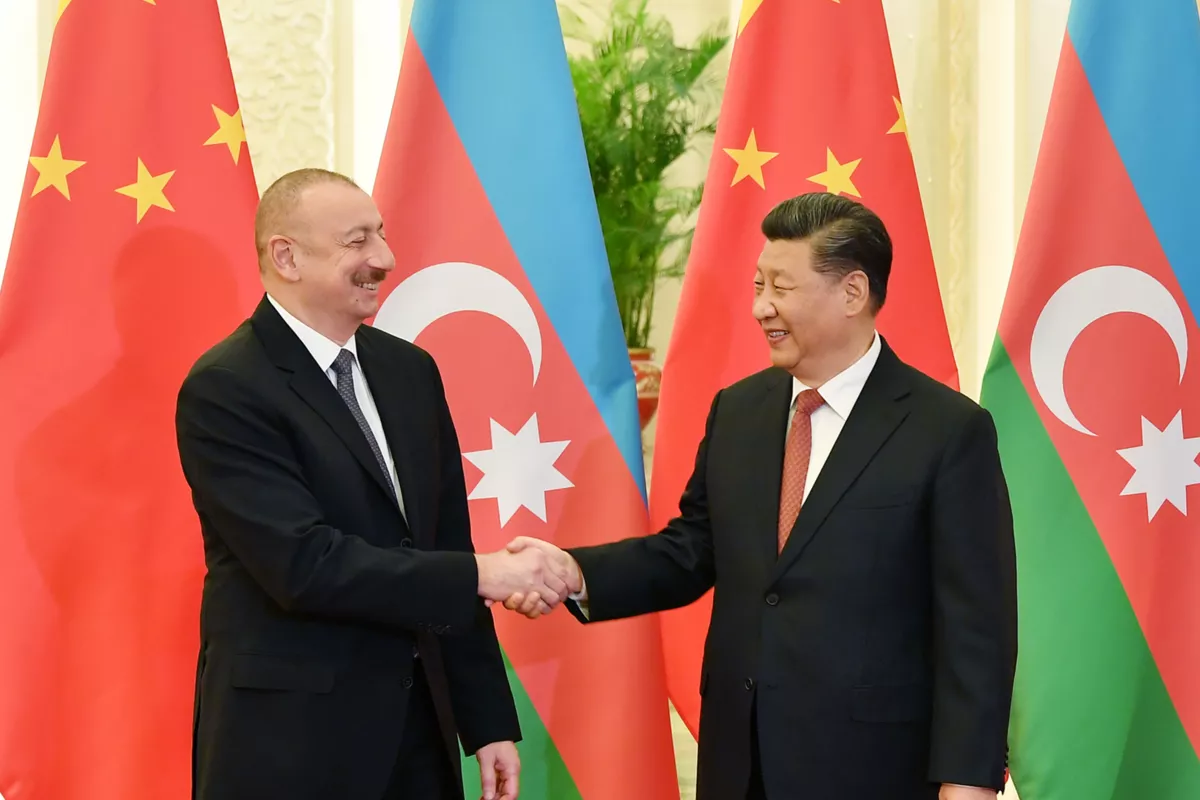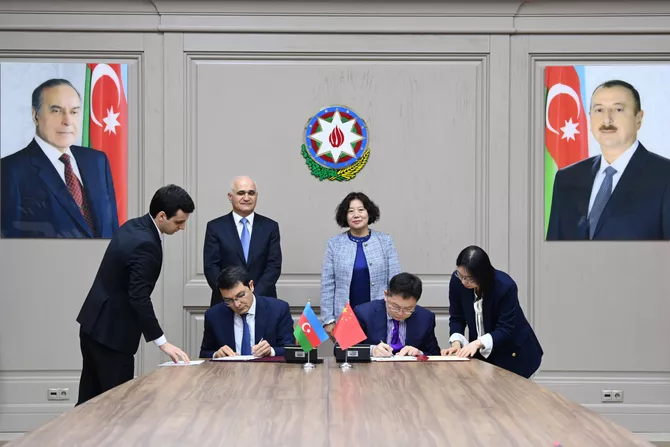
photo: Topchubashov Center
Starting from July 16, a mutual visa-free regime between Azerbaijan and China officially comes into effect. According to the Azerbaijani Ministry of Foreign Affairs, all internal procedures required for the implementation of the Agreement-signed on April 23, 2025, in Beijing-have been completed. The agreement provides for the abolition of visa requirements for citizens of both countries holding ordinary passports.
Under the Agreement, Azerbaijani and Chinese citizens may stay in the other country without a visa for up to 30 days per trip, with a total stay not exceeding 90 days within any 180-day period.
China’s Ministry of Foreign Affairs has also announced the introduction of the visa-free regime. Its Consular Department emphasized that individuals planning long-term stays, permanent residency, or activities requiring prior authorization-such as employment, study, or journalism-must obtain the appropriate visa in advance.
President Ilham Aliyev ratified the Agreement on June 10, following its approval by the Milli Majlis at the end of May.
Although the agreement only now enters into force, its positive impact is already being felt. According to Chinese Ambassador to Azerbaijan Lu Mei, the number of Chinese tourists visiting the country has surged by a record 70%. She noted that humanitarian ties between the two nations are flourishing, particularly in tourism, education, culture, and media.
This rise is evident on the streets of Baku, where Chinese tourists have become an increasingly common sight. President Aliyev’s April visit to Beijing gave fresh momentum to bilateral relations. Chinese visitors are known for their friendliness, modesty, and genuine interest in local culture-qualities that make them especially welcome guests. The lifting of visa restrictions will undoubtedly accelerate tourism flows, as Azerbaijan represents a unique and largely undiscovered destination for Chinese citizens, rich in culture and hospitality.
On the other hand, Azerbaijani citizens are also eager to travel freely across China-one of the world’s greatest civilizations, where ancient traditions coexist with cutting-edge technologies. As soon as the agreement’s effective date was announced, many began actively booking tickets.
The visa-free regime carries strategic significance not only for tourism but also for strengthening humanitarian, economic, and business ties. As President Aliyev noted, this step will promote “the intensification of humanitarian contacts, growth in tourist flows, and the expansion of cultural exchange and business cooperation.”
In 2024, bilateral trade between the two countries grew by 20.7%, reaching $3.744 billion. China ranked fourth among Azerbaijan’s foreign trade partners, accounting for 7.9% of total trade volume. Moreover, China became Azerbaijan’s largest source of imports, representing 17.69% of total imports.

photo: Trend
In an interview with Xinhua News Agency, President Aliyev emphasized that despite the positive momentum, the potential for bilateral cooperation remains far from exhausted-especially in areas such as high technology, renewable energy, and logistics.
The development of relations between Baku and Beijing has been steady and driven primarily by economic priorities. Azerbaijan was among the first countries to support China’s Belt and Road Initiative and has become a key hub along the route. For China, Azerbaijan’s transport infrastructure plays a vital role-including the Baku-Tbilisi-Kars railway, the North-South International Transport Corridor, and the Trans-Caspian route (Middle Corridor). Of particular importance is the Port of Alat, the largest seaport on the Caspian Sea. Azerbaijan’s strategic location and advanced logistics make it an indispensable partner for China.
Cooperation is also expanding in education, culture, and other humanitarian spheres.
It is worth noting that China has been actively broadening its list of visa-free countries. In 2023, Azerbaijan was not yet included. At the end of 2023, China unilaterally granted visa-free access to citizens of France, Germany, Italy, the Netherlands, Spain, and Malaysia. In March 2024, the same regime was extended to Switzerland, Ireland, Hungary, Austria, Belgium, and Luxembourg. In July, it was further expanded to include Poland, Australia, and New Zealand. Initially limited to 15-day stays, the permitted duration was extended to 30 days in November 2024.
Later that month, China granted visa-free access to citizens of Slovakia, Norway, Finland, Denmark, Iceland, Andorra, Monaco, Liechtenstein, and the Republic of Korea. According to Chinese Foreign Ministry spokesperson Lin Jian, the expansion of visa-free policies is aimed at boosting inbound tourism. In the first half of 2024, China welcomed 14.63 million foreign visitors, with 8.5 million arriving from visa-free countries-accounting for 58% of the total and marking a 190% increase compared to the same period last year.
Additionally, China maintains a visa-free transit policy for citizens of 55 countries-including the United States, Canada, and the United Kingdom-allowing stays of up to 240 hours without a visa, provided travelers have a ticket to a third country and enter through one of 37 designated ports.
It is important to emphasize that the agreement between China and Azerbaijan allows Azerbaijani citizens to remain in China without a visa for up to 30 days. This not only reflects the high level of political trust between the two countries but also signals their commitment to deepening their strategic partnership. In essence, this move goes beyond tourism and marks the beginning of a new chapter in bilateral relations-one of openness, friendship, and mutual confidence.
The visa-free regime will become a powerful driver for expanding people-to-people exchanges, fostering connections between entrepreneurs, students, academics, and cultural figures. It lays a unique foundation for deepening humanitarian ties and mutual understanding between the two nations.
At a time of global turbulence, when international relations are increasingly tested, Azerbaijan and China offer an example of pragmatic and mutually beneficial cooperation rooted in shared goals, sustainable development, and respect for each other’s national interests.
Share on social media